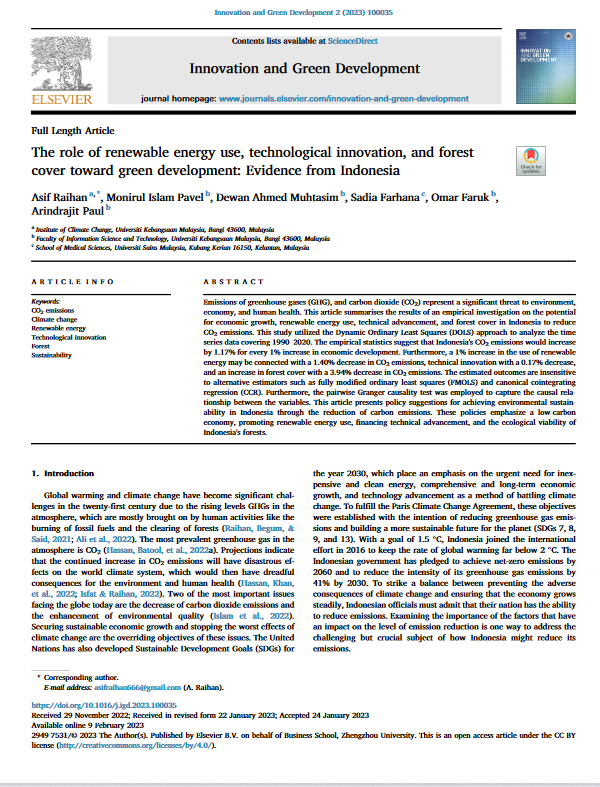
Keyword(s)
Author(s)
Asif Raihan (a), Monirul Islam Pavel (b), Dewan Ahmed Muhtasim (b), Sadia Farhana (c), Omar Faruk (b), Arindrajit Paul (b)
Country(ies)
Publisher
Published Date
Access
DOI
Emissions of greenhouse gases (GHG), and carbon dioxide (CO2) represent a significant threat to environment, economy, and human health. This article summarises the results of an empirical investigation on the potential for economic growth, renewable energy use, technical advancement, and forest cover in Indonesia to reduce CO2 emissions. This study utilized the Dynamic Ordinary Least Squares (DOLS) approach to analyze the time series data covering 1990–2020. The empirical statistics suggest that Indonesia’s CO2 emissions would increase by 1.17% for every 1% increase in economic development. Furthermore, a 1% increase in the use of renewable energy may be connected with a 1.40% decrease in CO2 emissions, technical innovation with a 0.17% decrease, and an increase in forest cover with a 3.94% decrease in CO2 emissions. The estimated outcomes are insensitive to alternative estimators such as fully modified ordinary least squares (FMOLS) and canonical cointegrating regression (CCR). Furthermore, the pairwise Granger causality test was employed to capture the causal relationship between the variables. This article presents policy suggestions for achieving environmental sustainability in Indonesia through the reduction of carbon emissions. These policies emphasize a low-carbon economy, promoting renewable energy use, financing technical advancement, and the ecological viability of Indonesia’s forests.
Cite:
Raihan, A., Pavel, M. I., Muhtasim, D. A., Farhana, S., Faruk, O., & Paul, A. (2023). The role of renewable energy use, technological innovation, and forest cover toward green development: evidence from Indonesia. Innovation and Green Development, 2(1), 100035.